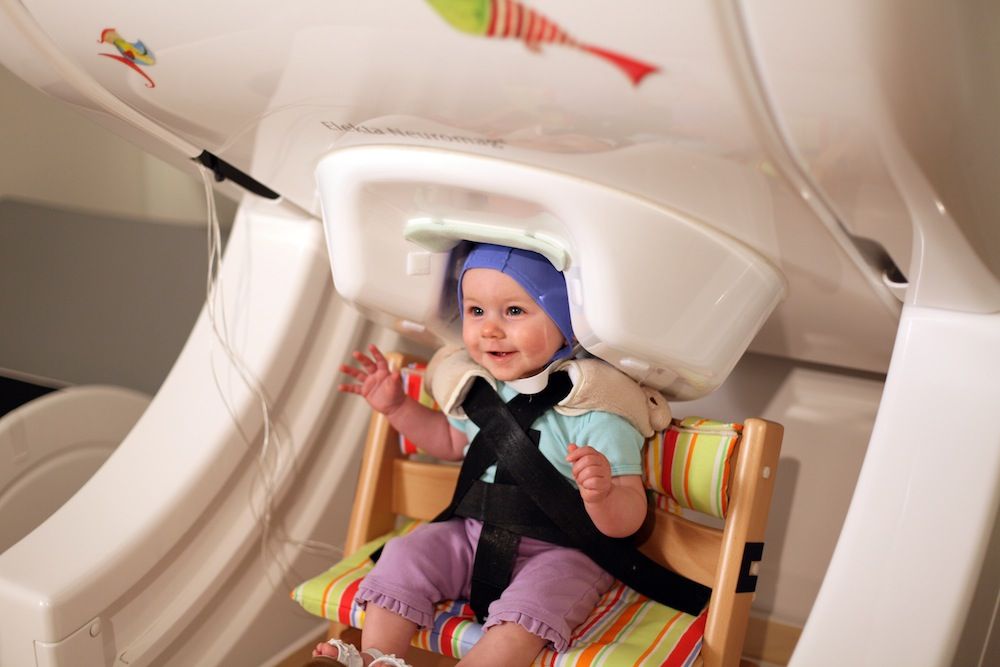
Months before they say their first real "mama" or "dada," babies are practicing those words in their heads, new research suggests.
Brain areas associated with speech motor planning light up in 7-month-old babies, even though little ones don't usually talk until they are 1 year old.
"Finding activation in motor areas of the brain when infants are simply listening is significant, because it means the baby brain is engaged in trying to talk back right from the start, and suggests that 7-month-olds' brains are already trying to figure out how to make the right movements that will produce words," lead author Patricia Kuhl, who is the co-director of the University of Washington's Institute for Learning and Brain Sciences, said in a statement. [In Photos: How Babies Learn]
Baby talk
Babies start developing language very early. For instance, researchers have found that infants as little as 6 months can understand words.
By 7 months old, babies can distinguish different speech sounds, such as whether someone is talking English or Swahili.
But by their first birthday, babies focus mainly on the sounds they hear most often. Scientists don't yet have a clear picture of how the brain transitions from listening to everything, to focusing on a native language.
Sign up for the Live Science daily newsletter now
Get the world’s most fascinating discoveries delivered straight to your inbox.
Practice makes perfect
To understand more about this transition, Kuhl and her colleagues looked at 57 babies, who were either 7-months or 11- to 12-months-old, in a non-invasive brain scanner. The researchers played the sounds of syllables such as "da" from both English, the babies' native language, and Spanish, a foreign one, while measuring the little ones' brain activation.
Several areas associated with planning the movements of speech lit up, including Broca's area, the cerebellum and an auditory region called the superior temporal gyrus.
The babies were likely practicing speech movement months before they were able to say their first words, the researchers said.
At 7 months, these motor planning regions activated equally for both foreign and familiar sounds, but older babies showed more activation when they heard sounds that were unfamiliar. The team hypothesized that the older babies were, in essence, working harder to predict which movements they would need to do to make unfamiliar sounds.
The researchers said they suspect these motor-planning regions of the brain may play a role in infants' transition to focusing on native language.
Talking back
The new results underscore how important it is to talk to babies, even if they can't talk back.
"Hearing us talk exercises the action areas of infants' brains, going beyond what we thought happens when we talk to them," Kuhl said. "Infants' brains are preparing them to act on the world by practicing how to speak before they actually say a word."
The findings were published today (July 14) in the journal Proceedings of the National academy of Sciences.
Follow Tia Ghose on Twitter and Google+. Follow Live Science @livescience, Facebook & Google+. Original article on Live Science.

Tia is the managing editor and was previously a senior writer for Live Science. Her work has appeared in Scientific American, Wired.com and other outlets. She holds a master's degree in bioengineering from the University of Washington, a graduate certificate in science writing from UC Santa Cruz and a bachelor's degree in mechanical engineering from the University of Texas at Austin. Tia was part of a team at the Milwaukee Journal Sentinel that published the Empty Cradles series on preterm births, which won multiple awards, including the 2012 Casey Medal for Meritorious Journalism.











